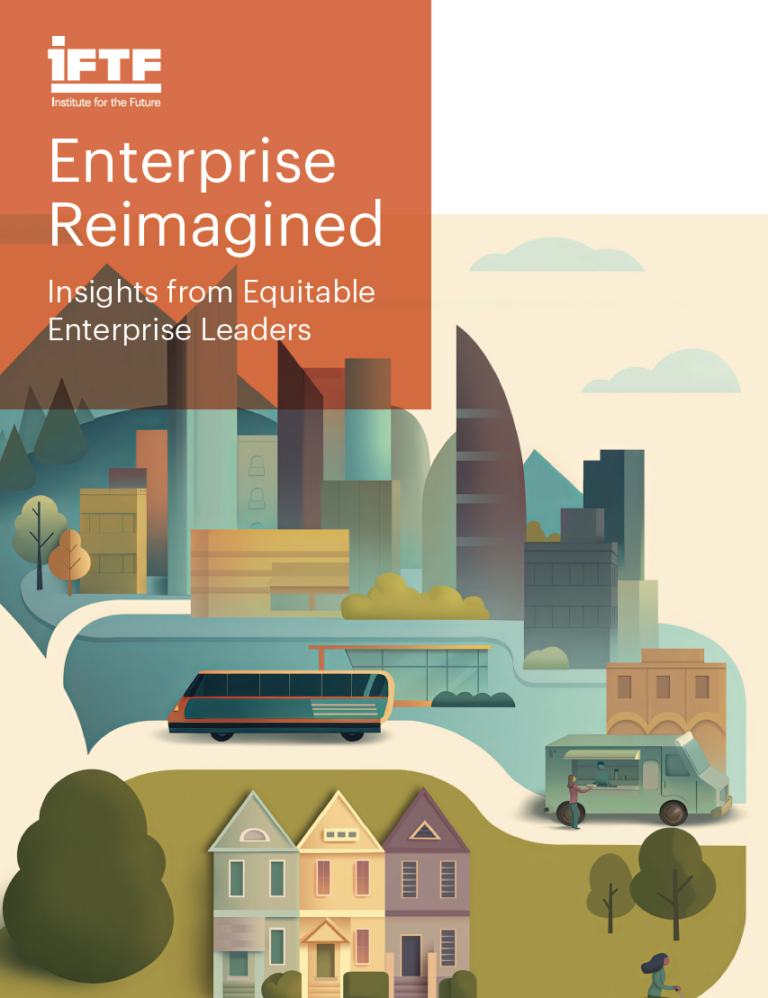This report shares learning from a research project on equitable enterprise (EE). It is part of our Equitable Enterprise Initiative at Institute for the Future (IFTF), a two year program supported by the Conrad N. Hilton, John Irvine, Robert Wood Johnson, W.K. Kellogg Foundation, and The Ford Foundation that explores how the structure of enterprise has exacerbated inequality in the United States and how a future of more equitable business practices and a more humane economy might look.
Our IFTF research team conducted in-depth interviews with EE leaders across the United States to investigate the processes they are implementing today to make business more just and sustainable, focusing in particular on what motivates people to do this work and the challenges and barriers EE leaders face. In addition to examining efforts to reform business practices, this report aims to identify emerging patterns, opportunities, and challenges to help EE leaders and their supporters—including philanthropic and other social sector organizations, educational institutions, and policymakers—prepare for and shape a more desirable future.
In the Introduction, we outline why enterprise design plays a key role in achieving equitable economic outcomes and describe our research methods. In the subsequent five sections, we share key findings from our interviews:
OWNERSHIP, DECISION-MAKING, AND RESOURCE ALLOCATION:
Defining Boundaries of Inclusion
We explore the operational logic employed by EE leaders, discuss ownership and
its role in a more equitable economy, and examine the tensions that arise for EEs
when working toward an organization’s mission on the one hand and maximizing
wages and wealth-building opportunities for employees on the other.
IDEOLOGY:
Using—or Challenging—“The System”
We address the principles EE leaders rely on to describe and justify their work,
exploring how some seek to use the system to create wealth and ownership
opportunities for individuals who have not previously had access to them, while
others seek to change the system by creating organizations that operate in a
fundamentally different way than their mainstream corporate counterparts.
GROWTH STRATEGIES:
Scale, Rootedness, and Replication
We discuss various strategies for growth and how they connect to organizational
goals and ideas about equity and impact.
KNOWLEDGE-SHARING AND TRAINING:
A Different Kind of Education
We examine various educational practices of EEs and how they intersect with and
further other organizational goals.
SUPPORT SYSTEMS:
The Importance of Institutional Terroir and Peer Communities
We consider the ways institutional terroir—the social, political, cultural, historical,
institutional, resource endowment, and regulatory ecosystems in which private
enterprises are started and operate—facilitate or hinder the ability of an individual
to start, grow, and sustain an EE. We also address how EE leaders build and
mobilize local and dispersed communities of peers.

